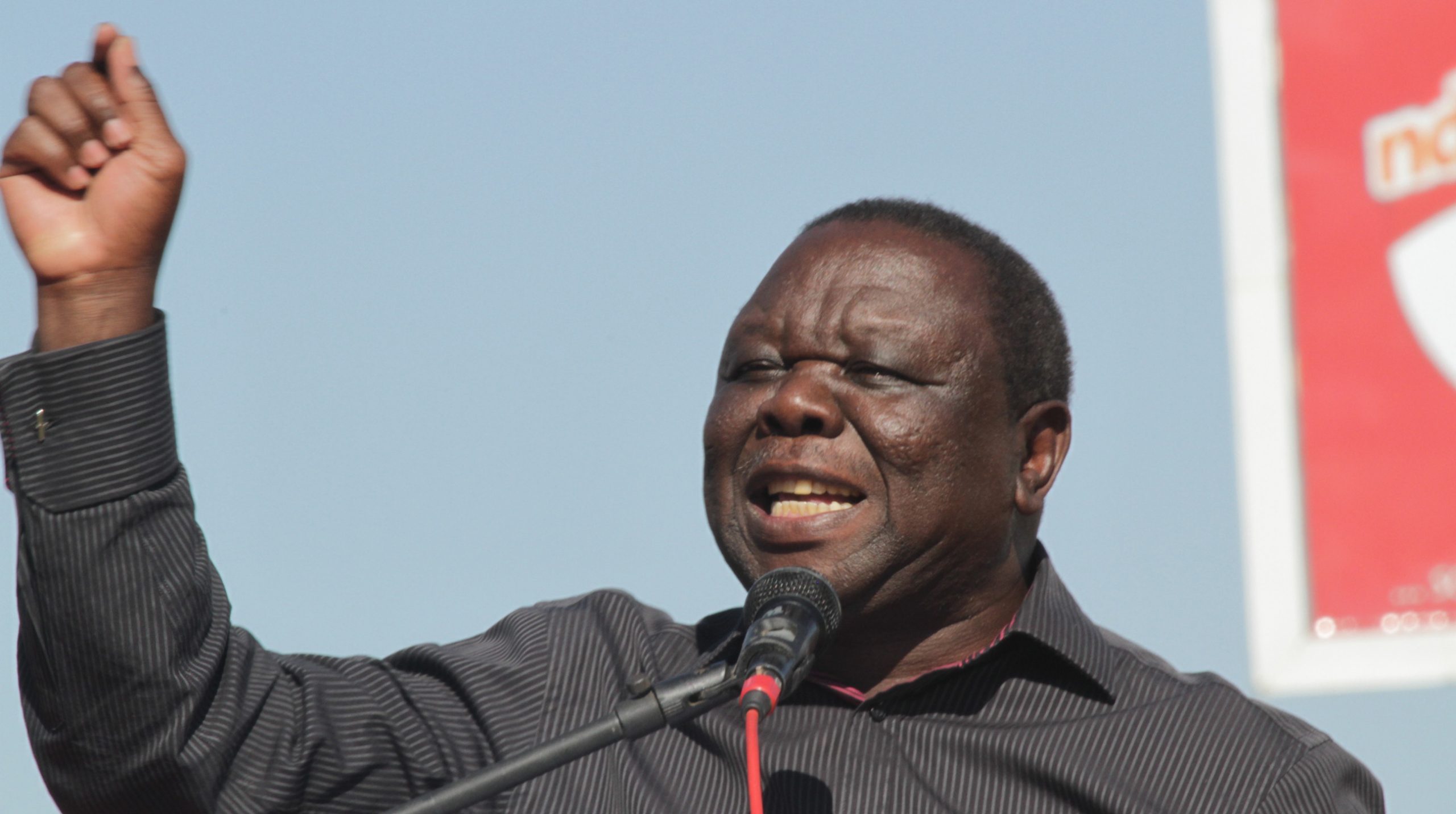
MDC-T might have dug its own grave by suspending its treasurer-general Elton Mangoma as the move only served to confirm criticism that party leader Morgan Tsvangirai does not tolerate opposing views, analysts said yesterday.
Richard Muponde Senior Reporter
The party on Friday suspended Mangoma for asking Tsvangirai to quit, a move which has divided a party recovering from election routing last year.
Dozens of anti-riot police kept watch outside the MDC-T headquarters in central Harare as the party’s national council, its top decision-making body, met.
Analysts said the move could prove suicidal for Tsvangirai who in 2005 presided over the costly split of the united MDC.
Midlands State University lecturer Nhamo Mhiripiri said by suspending Mangoma, Tsvangirai was being hypocritical.
He said the MDC-T leader had contradicted his public statements last week where he called for founding members of the party such as Welshman Ncube and Job Sikhala to return to the fold.
“I think the leader lacks consistency. It’s a big contradiction of what he was preaching last week. As a leader supporters would distrust you, lack confidence in you and even fear you,” Mhiripiri said.
- Chamisa under fire over US$120K donation
- Mavhunga puts DeMbare into Chibuku quarterfinals
- Pension funds bet on Cabora Bassa oilfields
- Councils defy govt fire tender directive
Keep Reading
“They see you as a leader who does things in a rush without properly applying your mind.
“The document which Mangoma wrote was not for public circulation.
“He handed it over to Tsvangirai and was supposed to be an internal party issue discussed behind closed doors.”
The academic said the fact that Mangoma handed the document directly to Tsvangirai, exonerated him as he intended to generate debate internally.
“He wanted the weaknesses of the party and that of Tsvangirai to be discussed internally,” he said.
“If MDC-T and Tsvangirai are not willing to do soul searching as to why they resoundingly fell to Zanu PF, there is a likelihood of another major spilt.
“Welshman Ncube should be vindicated for announcing that Tsvangirai was a violent leader by nature. He said they could not reunite because they differ in principle and ethics,” he added.
“Technically the two MDCs were the majority in Parliament and could have won the presidency in 2008, if they had worked together. This time Ncube should be vindicated.”
MDC secretary-general Tendai Biti said the suspension of Mangoma was irregular and said members had been intimidated during a meeting he said was not properly constituted. Biti said Mangoma had not been given a proper opportunity to defend himself and the national council members had not conducted a vote as required under party rules.
Founding MDC youth leader Bekithemba Mpofu, now a United Kingdom-based academic, said Tsvangirai was not being any different from Zanu PF leaders.
“It is the Zanu PF scenario all over again and evidently, we haven’t learnt much and our actions make it difficult for the electorate to believe that we are different and many might now mistake us for Zanu PF clones,” he said.
Mpofu added: “Let’s analyse the situation. We keep hearing about this correct platform for expressing views.
“But how is this expected to take place in reality? l thought Mangoma’s first approach was appropriate and dignified, he went to Morgan in private with (deputy president) Thokozani Khupe and Biti as witnesses, which is a route any loving team member would use in support of their team leader, than undermining their leader by raising issues in front of other team members.
“However, this was not found to be appropriate, so he addressed his concerns to the national executive colleagues, a structure he is a member of. Now that was not considered appropriate either, the question therefore is: What is the correct platform for senior members to raise concerns? When people cannot be heard and there is no platform for freedom of expression as clearly is the case on this occasion, people turn to the public broadcast which is what Mangoma did.”
He said Tsvangirai had an opportunity to show Zimbabweans that political leadership in the country is not for life.
“He would have a role to play even if he was no longer a leader. While it is his right to stay on, this dilutes the message that we as a party are genuine agents of political change,” Mpofu said.
Mangoma angered Tsvangirai’s supporters when he sent the party leader an open letter in January asking him to resign, arguing that he had failed to push through reforms while in the four-year power-sharing government with President Robert Mugabe.
Mangoma last month said he had been assaulted by Tsvangirai loyalists while emerging from a party meeting and went on to make a police report. He said Tsvangirai had organised his beating, an accusation the MDC-T leader has denied, and the case is now before the courts.
MDC-T spokesman Douglas Mwonzora told journalists after the national council meeting: “The actions by Mangoma have seriously undermined our relationship with strategic partners. It is also further noticed that his behaviour and attitude undermines the party.”
Mangoma was served with his suspension letter during the meeting and will appear before a tribunal, Mwonzora said.
Tsvangirai (61), has led the MDC-T since it was formed in 1999 to challenge Mugabe, the sole ruler since the former Rhodesia gained independence from Britain in 1980, and his Zanu PF party.
But the ex-labour union leader has failed to dislodge 90-year-old Mugabe in three elections, although none of them was free or fair according to the MDC and Western observers.
— Additional reporting by Reuters










